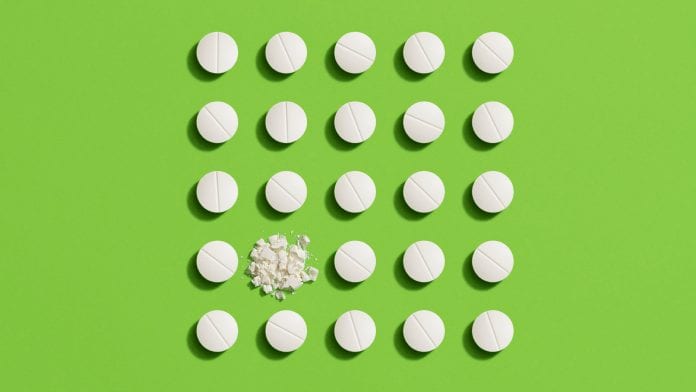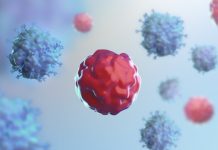
Derived from the iboga plant, ibogaine is a psychoactive compound that could have huge potential as a long-term solution to addiction. ATAI Life Sciences and DemeRx are soon initiating clinical trials to test its efficacy.
According to the World Health Organization around 3.3 million people die every year from alcohol addiction and around 31 million have substance use disorders, but there are currently no long-term solutions for treating addiction. ATAI Life Sciences hopes that the clinical trials can demonstrate that ibogaine could be a contender for helping people kick their addictive habits for good.
The bushy iboga plant, or Tabernanthe iboga, produces slender orange fruits and grows in parts of Africa such as Gabon and Cameroon, however, it is difficult to cultivate outside of the country. Its extract – ibogaine – is an entheogen used in religious Bwiti ceremonies of the Punu and Mitsogo peoples as an initiation rite and to help with psychological conditions.
Chief Scientific Officer at ATAI Life Sciences, Srini Rao, spoke to Health Europa editor Stephanie Price about the upcoming clinical trials which will be investigating whether ibogaine, in conjunction with digital support tools providing cognitive behavioural therapy (CBT), could offer a long-term solution for those battling with opioid addiction.
What is ibogaine and how does it work?
Dr Deborah Mash, Chief Executive Officer and founder at DemeRx, is a visionary in the field of ibogaine research and has been studying the iboga plant and its medical benefits for thirty years. Through her research, she has demonstrated that purified ibogaine (the active moiety in iboga plant extracts) could have applications for treating substance use disorders, and in particular, opioid use disorder.
To date, there have been no double blind, placebo-controlled trials to test the efficacy of ibogaine for the long-term treatment of opioid use disorder, but open label studies and case series suggest that a single dose of ibogaine may result in long-term abstinence.
Rao, who will be supporting the clinical trials, said: “People suffering with opioid addiction tend to revert to taking their drugs relatively quickly, so the open label data is quite supportive. The results suggesting that a single ibogaine treatment may result in months of remission is surprising and, if replicated, would be revolutionary.”
Patients who are opioid dependent are currently treated with substances such as methadone and buprenorphine, both of which engage with opioid receptors in the brain differently to heroin, morphine, or oxycodone, thus blunting cravings. In individuals who are not opioid dependent, compounds like naloxone or naltrexone may be used, to make getting a high off of an opioid of abuse more difficult.
Rao said: “However, neither class of drug addresses the underlying desire to take a drug in the first place. This is what ibogaine seems to be doing – which is why it is a potential gamechanger in this space.”
Ibogaine clinical trials
The aims of the upcoming clinical trials are three-fold: to understand the drug from pharmacokinetic and dosing perspectives, to understand the compound’s tolerability and safety (particularly with respect to cardiovascular impact), and finally, to determine ibogaine’s effects on short-term withdrawal and long-term abstinence in a robust, double-blind, placebo-controlled trial. This type of study is considered the ‘gold standard’ and is the first to be conducted with ibogaine to date for treating addiction.
Rao said: “Ibogaine has been used in iboga clinics with bad cardiovascular outcomes being noted. This is not surprising as drug administration is not well controlled, and the actual dosage of drug being delivered is often unknown. When ibogaine was tested by Deborah Mash in controlled circumstances, no significant cardiovascular events were observed.
“Right now, our plan is to administer the ibogaine once. One of the approaches that we are using to support and assess the patient after the ibogaine therapy involves a digital therapeutic, which will provide both behavioural therapy and social support via a virtual community of subjects in the trial. We do not expect much of a placebo response, even for the digital therapy, as this is not a population who tends to do very well unless CBT is used in conjunction with a drug. We will be closely monitoring the participants and if there are any signs that they are using drugs again we will have them appropriately treated.
“For this first phase of the trial, we are looking at a three-month post-dose observation period, but I would like to see, in future trials, what happens over six months and a year to help answer the question of when participants do need to be re-dosed.”
Facing the root cause of our addictions
Many people who are battling addiction are dealing with deep rooted psychological and emotional problems or traumas – cloaking pain by using substances. For this reason, it can be difficult to find a long-term solution for addiction without addressing the root cause for using the drugs in the first place.
Rao said: “The pharmacology of ibogaine is incredibly complicated, and it is not obvious at this moment what is driving its effects. The extract clearly has an impact on neuroplasticity like psilocybin, though the psychedelic effect that it creates is subjectively very different to what you get with psilocybin. It is a lot more dreamlike and protracted and can last over 20 hours in some individuals.
“The psychedelic experience that is often described is that the drug takes you through all of the bad decisions you have made in your life in a chronological order and makes you confront them. Ibogaine is not generally thought of as a drug of abuse as most people don’t have a great experience overall – but one hypothesis for why ibogaine has such profound, long-lasting effects is that by making you confront and process previous traumas, you obviate the need to abuse opioids as you are no longer trying to placate some underlying pain.”
America’s opioid epidemic and the search for a solution
The supporting digital CBT therapy will be an additional branch of the trial which aims to help address the opioid epidemic and standardise supportive care in America.
Rao said: “Standardising support is one of the challenges in the US today. There is such different levels of therapy and resources depending on where you live – if you live in a big city there are quite a lot of resources, but if you are out in a small town in rural America, the level of resources is likely considerably less. We want to standardise that to some degree across the US, ensuring that everybody has at least a basic level of support.
“Ibogaine could be a part of the solution, but when all is said and done, no drug is going to work for everybody. However, hopefully, a substantial amount of people will get a benefit from ibogaine. The need is even more pressing in light of the COVID-19 crisis, which appears to be exacerbating the opioid crisis in the US.”








